Gradual elimination of mariners from maritime sector
Part I:
The Pakistani forces in occupation of Bangladesh finally surrendered to allied forces of Bangladesh and India on December 16, 1971. The ceremony took place in Dhaka. In Chittagong Pakistani forces were still negotiating with Indian local command for organized mass surrender. I was in Chittagong. We eventually went to bed knowing that Bangladesh was liberated. However, 17th morning was a different picture. Celebrations were taking place all around. There were perhaps more members of 16th battalion rather than actual freedom fighters. It did not matter. Bangladeshis were happy to be finally free.
We gathered around Circuit House Building. I was in close contact with Capt. M L Rahman, a senior member of the marine community. Mr. Nurul Islam, B.Sc., newly appointed administrator of the region soon arrived in the circuit House. In a brief speech he asked everyone to get back to respective jobs so that normalcy can be brought within the shortest period. In his few words he emphasized the importance of re-opening the port so that relief materials including food grain and petroleum products can be received. He also laid lot of importance on communication of inner and central part of Bangladesh with Chittagong by road, rivers and railway.
An announcement from Dhaka appointing Mr Ghulam Kibria as the acting chairman of the port was very helpful. He was formerly the chief traffic manager of Chittagong Port Authority. The government made another announcement appointing Mr Quddus as the acting Port Director of Mongla Port. Mr Quddus was formerly director of ports, BIWTA. Such quick action on the part of the new government was very praise-worthy considering the fact that ports and shipping were under the central government in Islamabad through Directorate General of Ports and Shipping in Karachi. I understand the presence of Capt. Q A B M Rahman was very helpful in making these prompt decisions.
The Government made another bold decision. It created the BTTG (Bangladesh Transportation Task Group) with Capt. Shafi as its head to ensure fair distribution of food grain to every corner of the country. Mr Shamsuddin Khan and Mr Deen Mohammed were appointed as regional coordinator for the task force. Despite the war and mass migration nobody died for shortage of food so long BTTG coordinated with WFP and UNDP. Things changed after 1974 when BTTG concluded its work and food distribution were taken over by political forces.
Capt. Shafi also took over as the Director General of the Department of Shipping and thereby relieved Capt. QABM Rahman to become the first (founder) chairman and managing director of the state-owned Bangladesh Shipping Corporation. It was because of determined efforts of Capt Rahman that the Presidential Order was issued on the 5th of February, 1972 establishing the state owned Bangladesh Shipping Corporation. The way BSC spread its business was beyond perception and many called it simply miracle. The first 5 years of BSC would always remain a period of miracle achievements for Bangladesh in shipping.
Despite the shortage of senior and experienced mariners the community kept on providing minimum, whatever it could, to keep the Academy running. Today as we look at the marine community of Bangladesh, we understand how important it was to keep the Academy running. Capt M L Rahman took over as Commandant of the Academy in addition to his duties as head of Chittagong office of the department of shipping. I also came to know that it was through Capt M L Rahman that Mukti Bahini knew about movement of Pakistani ships in Chittagong area.
We shall now focus little bit on how port of Chittagong came back to life. As the surrender ceremony was taking place in Dhaka, the Indian forces were still carrying out aerial bombing of Chittagong port. We do not know why but were always afraid that bombed ships would create wrecks and make the port unserviceable. It was on the afternoon of 17th December that I managed to make some sort of assessment of damages. There was a small ship named “Sonar Tori” anchored near Gupta bend. It had to be removed soon. If this vessel were to sink there it would make the port non-functional. There was a Pakistani ship “Al-Abbas” damaged by aerial bombing in the mid-stream and was threatening to close the channel unless immediate action was taken to save the port.
It was on 19th December, 1971 that I had a long meeting with Capt M L Rahman. Capt Rahman asked me to render my services for the Chittagong port. He said this taking into consideration that until September that year I was the chief officer of the ship “Safina-e-Arab” calling Chittagong once every 3 weeks and undergoing the same process of turning and berthing. With most of the pilots surrendering with Pakistani forces there was no mariner with practical pilotage knowledge of Chittagong. It was on 20th December, 1971 that I went and met Mr Kibria. The acting chairman was very happy with my good intentions but expressed his inability to appoint anyone. He was extremely happy when I smiled and offered my services on voluntary basis. He asked me to do something with “Al-Abbas” so that the port can be saved.
I came and boarded the ship in mid-stream and shall never forget what I saw with my own eyes. I saw Capt K Mehbub, the former harbor master (a Pakistani) working with a few others had been trying to pump out the flooded hold so that the ship could be brought alongside (to save the channel). During the conversation I found out as to why he was still working there. He said he earned his bread through Chittagong port and now he could not betray. He could not sit idle when the port was being ruined. Besides, he was a professional man and he thought it was his duty to do something. Yes, Capt Mehbub was successful and the channel was saved. Mean time “Sonar Tori” was already removed from Gupta bend to a safe distance. There was another Pakistani harbor pilot Mr Sarwar Bukhari who was trapped there and we utilized his services as well. I very much wished that Mr Kibria and Capt Mehbub were still alive to see that the history is not totally forgotten.
In a week’s time I was formally appointed by the Port Authority as an Assistant Harbour Master. However, I happened to witness lot of drama within the first few days. On one occasion a Captain of the Indian Navy approached Mr Kibria if the port of Chittagong should be temporarily closed and Calcutta should start accepting cargo destined for Chittagong. On another occasion the same captain again approached Mr Kibria to state that Hoogly River Pilots were stand-by to come and help us re-open Chittagong port. The name of the Indian Navy Captain was perhaps Baba or Khanna. I still remember how Mr Kibria thanked the officer for their kind offer and said that situation was being monitored very closely and we shall contact our good friends if anything is necessary. His response reflected his maturity, judgment and diplomatic skill. I cannot forget how Mr Kibria managed to slowly bring the port back to operation in those days of chaos and confusion.
Within about two weeks of liberation of Bangladesh, a few more mariners joined the port. They were – Capt. Ramzan Ali, Mr Mizanur Rahman (2nd batch), Mr Jalil (First batch) and Mr Shafi. Mean time Capt. S Y Kamal came to join as the new Harbour Master & Deputy Conservator. With some assistance from Mr Subhan, a retired marine pilot we managed to handle one or two ships and managed to reopen the port. I was hurriedly issued with a pilotage licence (the first one after liberation of Bangladesh) and slowly we brought the operation of the port to almost normal level. I should perhaps mention here that a few SCI ships were the first to call at Chittagong to take prisoners of war and surrendered war materials. One of those ships – mv Vishwa Kusum was hit by a mine in outer anchorage and eventually lost.
In response to the call made by the United Nations, a Norwegian tanker mt Sarita diverted for Chittagong with petroleum cargo. However, the master was so worried about mines that he anchored nearly 80 miles away from the river mouth. At that time we only had a few bay-crossing coastal tankers and those tankers could not make such sea passage. Two days already passed by and no solution was found. Eventually I agreed to lead a number of coastal tankers to Sarita. The brave masters of our inland tankers agreed to follow me in the mine infested waters of Chittagong. We created a chain of vessels linking Sarita with Chittagong. After discharging about ten thousand tons of cargo I managed to convince the master to bring the vessel little closer to Chittagong and the vessel finally left Chittagong after completing its mission of delivering the first consignment of petroleum oil after the war.
It was during the Sarita operation that I came across the first mine laid during the war. I saw it with binoculars floating with the tide and going towards Chittagong. I immediately notified the port control to issue necessary alert and arrange for its removal, if possible. Two days later I read in local newspaper that a mine like object exploded in the fishermen’s village leaving more than a dozen dead.
I have to still tell one more incident of mine. There was a small inland tanker named Esso Ark moored in the oil mooring. Another similar tanker belonging to BIWTC (perhaps named Kalindi) was tied up alongside. It was on a bright sunny morning that Esso Ark was suddenly blown away. The impact was so heavy that pieces weighing ten to twelve tons were blown across the road to perimeters of the oil company. The other tanker caught fire on the deck, got detached from the blown up vessel and was floating mid-stream. When I went there I found two tugs belonging to the port authority spraying water to the burning tanker to extinguish the fire. Capt. M L Rahman called me and explained that it was far more important to save the channel than the tiny tanker. If the burning tanker were to sink mid-stream it would block the cannel and the port. Instead of pouring water on the tanker it was necessary to push that tanker towards the other bank of the river to keep the channel clear. I took the proposal to Capt Kamal and he agreed with the idea but said that it was such a risky operation that he could not ask anyone for it. I told him that I would put the wire on the bit of the tanker if the tug takes me along. Capt Kamal still would not tell anything to the tug directly. Finally on the VHF he told the tug master to take orders from me and I did it. In my life I do not remember to have done anything so risky and dangerous. I do not know how Allah provided me with that moment of strength. Today as I think back about it, I cannot believe that I did it. God is great.
Chittagong still remained a port infested with mines and wrecks. On the other side some young mariners like Zahir, Belayet and Ferdous went to reopen Mongla port. They did a wonderful job. Our Russian friends came to clear Chittagong port and I was appointed to coordinate with them. The Russian salvage team did a professional job and cleared Chittagong port from all traces of the war. During the operation, one of their comrades died. I salute the Russian Salvage Team.
With just over a year’s service, I had to leave Chittagong port so that I could get back to my career and complete master mariner. Mr Kibria and Capt Kamal requested me to continue until at least four licensed pilots are available. I worked hard to train new pilots and then left the port.
The Government has rightly provided the national award to Russian Salvage Team. I feel the Government should have rewarded BTTG for their work. It was BTTG that took food to every corner of the country and nobody died for shortage of food and we never heard of any corruption.
We know of many Pakistanis who supported the Bangladesh movement but I do not know of anyone having gone to the extent Capt Mehbub went. This man (friend and well-wisher of Bangladesh) should have been given a national award to recognize his contributions. In the early days of Bangladesh, a number of people both professional and non-professional contributed their bit because of which Bangladesh could make such remarkable headway in ports and shipping sector. They are – Capt QABM Rahman, Mr KIbria, Cpat M Shafi, Mr QMS Zaman, Capt M L Rahman, Mr Zahedur Rahman, Mr Ayenul Haq and many others. When ports and shipping were under central government and the Dhaka administration had no clue of these matters, Capt QABM Rahman provided all the missing in-put. It was on his advice that the department of shipping was established. He was again the pioneer in establishing the state owned Bangladesh Shipping Corporation. Capt Rahman’s name is linked with the maritime evolution of Bangladesh in every respect. A national award for Capt QABM Rahman would be an inspiration for the entire maritime community of Bangladesh. I call up on the minister to arrange to place a bust of Capt Rahman on the main entrance of BSC Bhaban with the following “the first chairman and managing director”.
Capable and competent mariners are expected to make meaningful contributions to ports, shipping and inland waterways system. Years of service coupled with world-wide experience give them an initial advantage. However, such jobs at higher level of administration should never be restricted or confined to any group of technocrats or civil servants. They should always be open for those with knowledge, skill and wisdom – whether career civil servants or ex-mariners or even ex-naval personnel. In Bangladesh it is now evident that mariners are not wanted anywhere. The port authorities, maritime administration, shipping corporation or even BIWTC or BIWTA – there is no trace of mariners anywhere. It appears everyone other than mariners know all about it. This is a conspiracy not only against a community but also against the country. It now appears that to become a chairman of a port authority or director general of shipping or managing director of Shipping Corporation one has to be a commodore or admiral of the navy. This military expertise appears to be the only qualification recognized for such civil posting. In the meantime the defence forces are competing with each other for the number of senior civil administration jobs they can grab and the number of universities they can operate. Such diversions, nasty politics and conspiracies are destroying our armed forces.
Having no future opening or opportunity in the country, the mariners have landed abroad. Hong Kong, Singapore, Myanmar, Malaysia, Dubai, Saudi Arabia, UK, USA, Canada and Australia – they are there everywhere. They are in responsible positions. They are doing what they could not do in their own country. They even represent their new country of adoption in many international forums. The conspiracy is deep-rooted and is going to cripple maritime sector of Bangladesh. It will be explored wide open in the next issue under the same title. Remember, they (mariners) did not leave; they have been compelled to leave.
London, 15-January-2022. fazlu.chowdhury@btinternet.com
Part-II
In the earlier article under the same heading I explained how the senior mariners of this country contributed their services to re-open the war ravaged ports of the country and then laid the foundation of the maritime sector of Bangladesh. Our progress in the maritime sector is the direct outcome of their sincere efforts. Yet, there has been no recognition or reward for their services. Instead, a slow and gradual process of conspiracy and hatred against the mariners has relieved/ removed the mariners from all key positions in this sector; and those positions are now occupied by others. It has done a lot of harm to the country. The country lost the services of those with necessary knowledge and skill. The Bangladeshi expertise has been accepted by open arms by other countries and those mariners are in very responsible positions in those countries. In this second part of the article I shall provide all facts and evidence to substantiate my statement.
From the time we know of the earth, we know that more than 2/3 of the surface area of earth is water. We had to explore other land masses through the sea. Transportation of goods and passengers were the primary use of the sea. Piracy and military use of the sea is understood but today’s world of trade, commerce and communication through the sea has given a new dimension to the world. Obviously most nations took it upon themselves to make their own laws to administer the sea affairs in the shape of the Merchant shipping Act. If those countries were to make similar laws today they would probably give it a different title. Because the original administration started with merchant shipping matters, it is the maritime administration that took all matters connected with the sea under three distinct heading – safety, security and protection of environment. Eventually the UN agency IMO (International Maritime Organization) came into being to assist in formulation of common policies in the shape of international conventions. There are appropriate rules and regulations for all activities at sea and are monitored by sovereign states through their maritime administrations. Not only fishing and recreational use of sea but even the off-shore industry including oil and gas exploration has to comply with IMO conventions.
There were certain other matters relating to the sea yet to be resolved. Demarcation of sea boundaries was paramount so that nations could identify their jurisdiction without any dispute and determine their right for fishing or other exploration. There were matters relating to land-locked countries. There were also areas beyond all limits and the question of harnessing those resources. There was also the need for resolution of disputes between nations. After years of negotiation, the United Nations Convention on the Laws of the Seas was adopted in 1982 known as UNCLOS-82. It is a wonderful umbrella convention that took on board all existing conventions and recognized the role of related UN organs and agencies. It created the sea as a common heritage of mankind making sure that all nations and peoples could benefit from the sea. It created two organizations – International Sea-bed Authority (in Jamaica) and a tribunal (in Hamburg) for resolution of disputes between nations in addition to the existing UN Court of Justice. This is the only convention that not only member states but also UN agencies can sign for better cooperation and coordination.
The future of Bangladesh is very closely linked with the sea and as such UNCLOS-82 was considered a blessing for Bangladesh. Bangladesh quickly signed the convention and started circulating its map showing the sea area under its jurisdiction. The Government also sent some young civil servants for necessary education and training to Canada (Dalhousie University) and a number of others already had basic knowledge of the Convention through WMU courses. Bangladesh had to go to the Hamburg tribunal to resolve its dispute with Myanmar and to the Hague based UN court of justice for resolving a similar dispute with India. In both cases Bangladesh won most of its deserving claims. To deal with these matters effectively, Bangladesh opened a “cell” under a senior officer in the foreign ministry. The primary goal was to have our sea border demarcated to protect our share of sea resources. However, calling it “Maritime Affairs” was not well intended. It had other motives. It had nothing to do with maritime affairs because the Government already had a department of shipping taking care of all maritime matters. A divided or duplicated administration can never deliver the intended role and functions of the government. Creation of maritime affairs under the ministry of foreign affairs was nothing other than an attempt for creation of its own empire. It was the beginning of the conspiracy game. It was possible only because our political leaders were not smart enough to detect such undue and unwanted activities by a small group of civil servants, for whom personal glory was the goal, without any consideration of how damaging this would be to the nation.
The original task force had already done enough groundwork, when services of the navy sought to get a “better” in-put of hydrographic matters. But instead of working with the task force, the officer concerned installed himself as a one man, through a coup d’état style action of hijacking the cell. Those who had done the initial groundwork are no more connected with it. Naming the cell as Maritime Affairs was the next step. These diversionary tactics and activities kept being introduced and gained momentum. Directly or indirectly, all efforts were put together to show the failure of the maritime administration.
It is because of fine manipulation of this cell that the Department of Shipping could not appoint a mariner in our London mission for representing Bangladesh in IMO activities. The recent failure for Bangladesh to get elected in the IMO Council was due to absence of any such representation.
Eventually, the Government realized the importance of having a representation in IMO but the move was spoiled by appointing a Bangladeshi living in the UK. This man had no connection with any matter related to the sea or ships. But he was closely related or connected to someone in the ministry. After a few months this man finally surrendered by saying that the representation should be better made by some professional person.
The Ministry of Shipping finally made a proposal for creation of a post in our London High Commission for representation to IMO and reporting back to DG Shipping and the High Commissioner. The proposal received the consent of the Ministry of Finance and was finally approved by the Prime Minister. One of the professional civil servants (a commandant of one of the marine academies) was nominated for the post and this was also approved by the PM. The conspirators worked quietly to re-name the post as Councillor, Maritime Affairs so that this officer reports back to foreign ministry eliminating the role of the maritime administration. That way they would successfully divide the administration. Not only that, I believe efforts are underway to convince the government that a person of naval background would serve better in the post. The officer whose appointment has already been approved at the highest level and who should already be representing Bangladesh in IMO is presently running between the two ministries to obtain “clearance”. It is time the government finds out this invisible manipulator who has the audacity of flouting the orders from the highest level. These unscrupulous persons are enemies of the country and they must not be allowed to do any further damage to the country.
Our last BSC representative in London took a lot of interest in IMO matters and always kept the ministry and the department informed of all activities. It was through his efforts that Bangladesh was elected in the Council for at least two terms. By the time the BSC office in London was closed down, the representative was already employed by the IMO. The Government nominated him for IMSO and this man is now the Director General of IMSO for the second term. Such a gradual build-up from representation to IMO (during which period he was also the chairperson of a committee), working for IMO in P-5 position and then director-general of IMSO. Bangladesh has now a person known to almost everyone ‘who is who’ in the world of shipping. It is for the first time that Bangladesh reached up to that level and certainly it is the right time for Bangladesh to stand for the top job in IMO. If we do not avail this opportunity, God knows better if we will ever again get another opportunity.
Rightly the community made a move and the Ministry of Shipping agreed to contest the election for the post of secretary-general. But this initiative was suppressed and blocked time and again by the same conspirators until the foreign minister took the matter in his hand and got the approval of the prime minister. This paper relating to IMO’s top job is now lying in absolute silence both in the foreign ministry as well as our London mission. It is again the same conspirators who are trying to do the damage to the country by keeping the file inactive knowing very well that Bangladesh could win the election only through long term actions well in advance. Bangladesh is not a rich country like Japan or Germany to buy votes in exchange of aid or assistance. Bangladesh is also not rich enough for its foreign minister to visit capital cities of all council member states with our candidate to seek their support. The way Bangladesh could achieve the goal is by carefully planning in advance.
Winning the coming election for top IMO job is not impossible provided we draw the correct strategy. It is requested that our FM should advise our missions in New York, Geneva, London and Jeddah to keep an eye on all forthcoming elections whether for UN agency or Commonwealth or OIC and ensure that our vote is given only after sufficient understanding of reciprocal support for our IMO campaign. The FM may also advise our missions in IMO Council States to keep working in a steady and gradual process to gain their support for our IMO campaign. We can surely move ahead of others by taking these actions in advance. Our candidate is a house-hold name in IMO and well-known in the professional circle. What we need is a diplomatic punch and that our Foreign Minister may kindly arrange and deliver.
The silence of our High Commission, knowingly or not, is mysterious. It was expected that our HC would have a meeting with our nominee and discuss the campaign strategy. It is still not too late to do so. IMO is located in London and our mission in London will have the key role. Together they should decide when to announce publicly and how best to introduce our nominee. A press conference of maritime journalists should be one of the options where our candidate may give an outline as to how this UN agency can be made more dynamic. Our London mission must maintain close contact with missions of IMO Council member states in London so that we can get as many of those votes as possible.
Before I conclude this article I would like to focus clearly on certain points. The officer whose appointment as IMO coordinator has already been approved by the PM must be made effective without any further delay. The government, if it desires, may also conduct an inquiry into the delay and find those responsible for it. The officer will be attached to our High Commission and be answerable to the HC. It will be his duty to keep DG Shipping (our maritime administration) informed of all development and activities in the IMO and take such actions as advised. The officer should be designated as our IMO Coordinator or maritime attaché.
As I explained earlier our chances of winning the top IMO job will largely depend on how early we start our campaign and take the lead. I would request our Foreign Minister and our High Commissioner in London to call our nominee and discuss the matter. Together we should work to get the best results. There is no time to hide or suppress the file or to go into silence and forget the issue. This is a national matter as it involves the image of the country.
The cell in the ministry of foreign affairs looking after our sea boundary and other interest in the sea should be renamed appropriately so that it does not cause any duplication or mix-up with the maritime administration (Department of Shipping) which looks after maritime affairs except that demarcation of sea areas. This is how maritime administration works in all developed countries. Any delay will encourage the vested interests to cause more problems. In any future re-organization, the present department of shipping should be renamed as “Department of Shipping and Maritime Affairs”. The existence of two independent organizations representing the maritime sector is counterproductive, with no specific terms of reference and no defined authority.
I am sorry to say that the standard of general education in the country has fallen. This has certainly affected our civil service and general administration. Compared to that, the marine academy works outside any political influence and the training is never hampered by political actions. The nautical cadets study navigation (astronomical to satellite navigation), ship maintenance and operation, stowage and handling of cargo, economic geography, the UN system and international conventions and protocols, international trade and commerce and personnel management. The marine engineering cadets study physics, mathematics, electricity, types of boilers and principle of operation of steam engine including reciprocal and turbine, internal combustion engine and generators, manoeuvring of main engine and power distribution, maintenance and operation of air-conditioning and refrigeration. Marine Engineers also complete workshop (electrical and mechanical) training as per IMO syllabus to ensure a balance combination of theoretical knowledge with practical experience. There is requirement of mandatory period of sea-service and examination for progression to each higher position. Together they to put in years of training and service on ships going to different corners of the world before they eventually qualify as master mariner or class-1 marine engineer. Such well-trained people are an asset to the country. Marine engineers are a blend of mechanical and electrical engineers. That is why they are employed by five star hotel chains and off-shore industry including LNG and LPG sector.
Mariners have in the past held responsible portfolios, such as Director General of Shipping, Managing Director of BSC, Chief executive of TCB, Chairman of Port Authority, Sadharan Bima and Chittagong Development Authority. There was no problem. All civil servants worked together for the country. Appointment or promotion to senior civil service positions should be based on talent, experience and competence. Professional people like doctors, mariners, engineers, accountants and others must enjoy equal opportunities. There must not be any hatred or discrimination.
A mariner has been serving as commandant of the marine academy for over 15 years but there is no promotion for him. He got several extensions of service that shows his calibre. Why can the services of such an efficient civil servant not be utilized in a higher capacity? Government should investigate these matters and eliminate the hate campaign against mariners. No individual is indispensable and national interest is higher than personal interest.
“Hate the mariners and drive them out” is a recent phenomenon, which is being fed into the minds of the decision-making authorities. It is about time the country begins to re-evaluate its responsibilities and obligations towards the maritime industry. There needs to be one and only one administration which should be made responsible, the Ministry of Shipping. The existence of an additional organization such as Maritime Affairs under the Ministry of Foreign Affairs is counterproductive and not required. Accountability and responsibility should be apportioned to one organization alone to progress in a structured manner.
Our mariners who are standing by to create a mark on an international level should be given immediate support and assistance to achieve international posts and earn fame for the country. The dangerous politics of playing the Bangladesh Navy against the Merchant Navy should be investigated and harshly condemned. The best candidates should be considered for such posts, based on experience, merit, international exposure and acceptability.
It is time nepotism is put to rest and personal egos and ambitions at the expense of the country’s progress be banned. The government department and agencies should be re-aligned with international norm. Legislation and secondary regulations must be up-dated from time to time to keep us at par with other leading maritime nations. Deserving persons (without any discrimination) should receive governmental nomination and support for all international jobs. Time is of essence. We need to give this matter the urgency it deserves; and the government should develop a clean, well-directed policy based on reasons and justifications that will be beyond criticism and debate. We owe this to the country and our future generations.
London, 03-February-2022 fazlu.chowdhury@btinternet.com



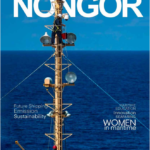
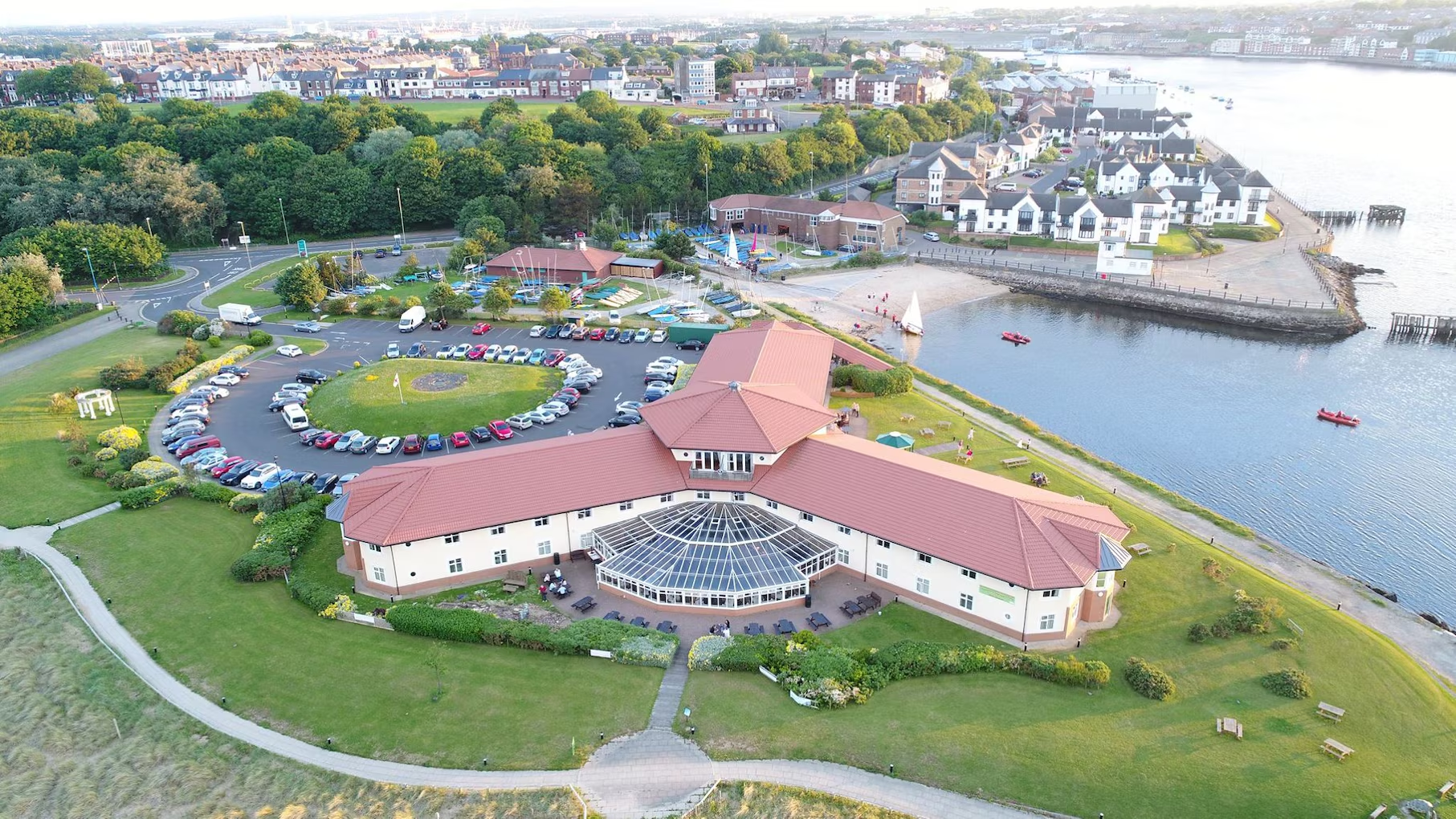
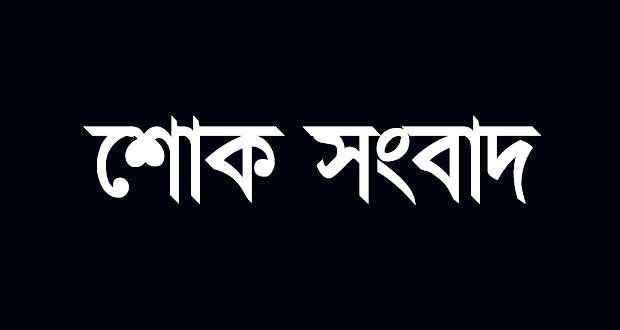



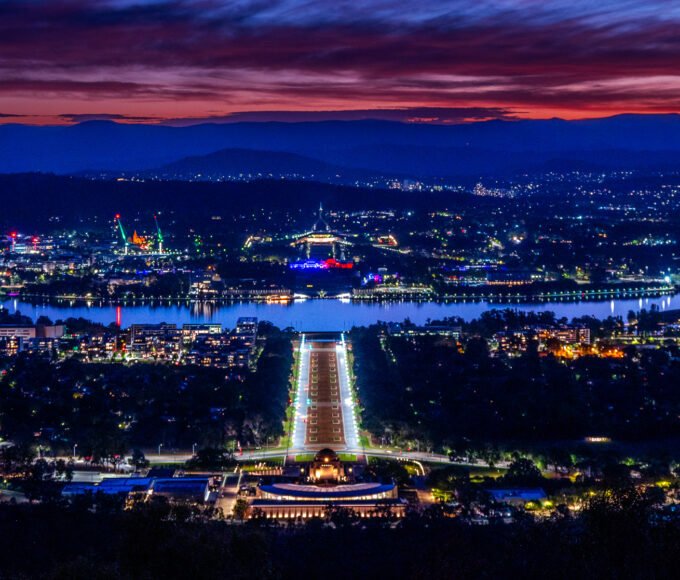

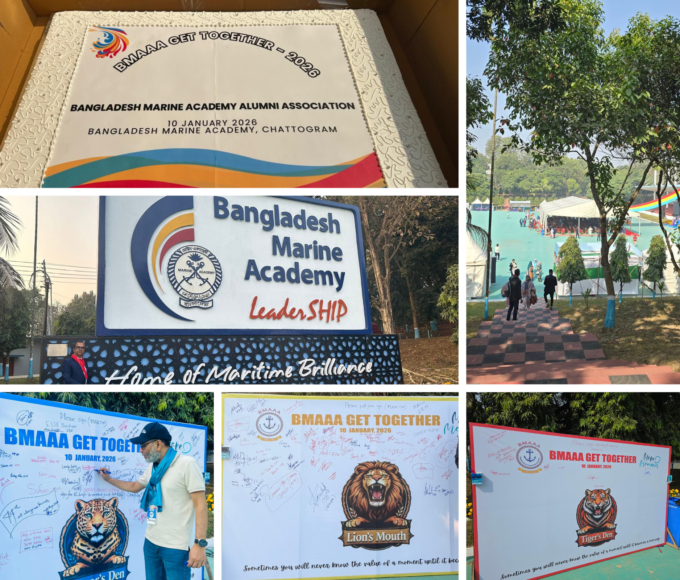




Recent Comments